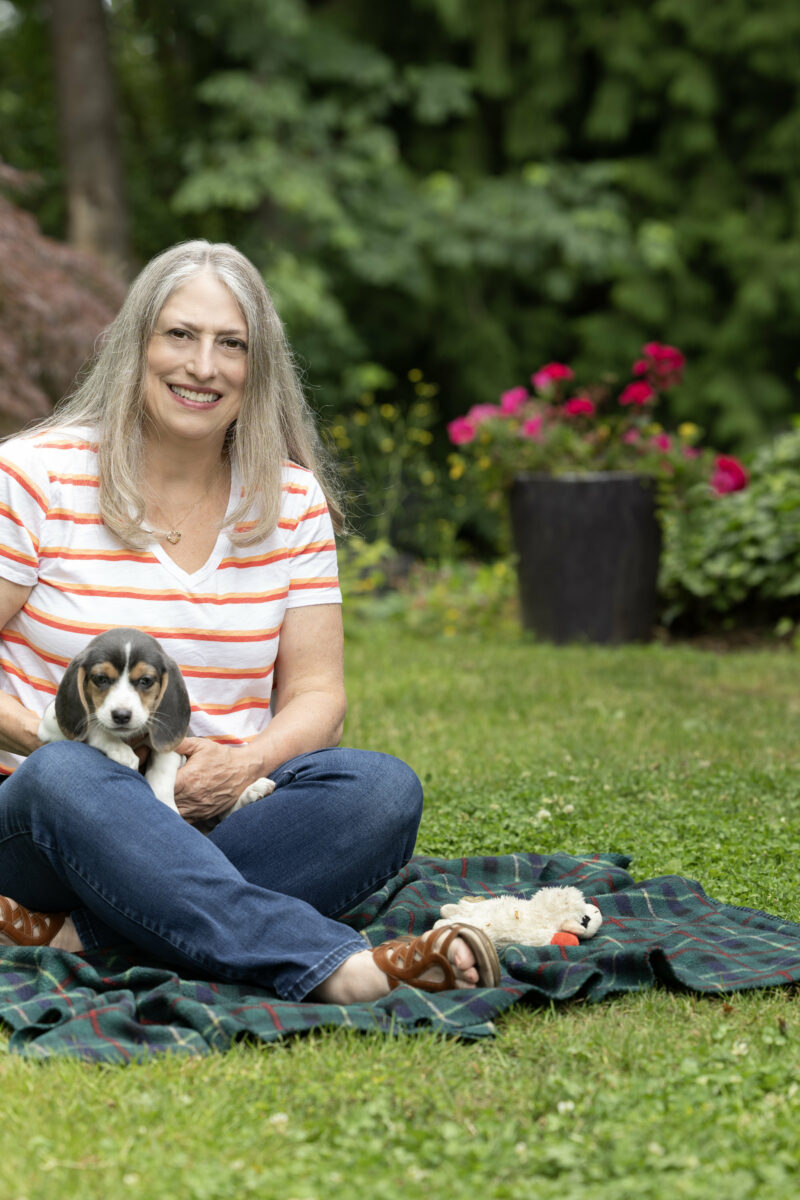Lornas Blog
10.16.25
Kategorie: Stimmen von Überlebenden
Art: Blog
10.16.25
Kategorie: Stimmen von Überlebenden
Art: Blog
 Manchmal erscheint das Leben so schwierig. Noch schwieriger wird es, wenn man sexuelle Übergriffe erlebt hat. Rückzug und Isolation bieten Sicherheit und Geborgenheit.
Manchmal erscheint das Leben so schwierig. Noch schwieriger wird es, wenn man sexuelle Übergriffe erlebt hat. Rückzug und Isolation bieten Sicherheit und Geborgenheit.
Als Kind wurde ich von drei Männern in meiner Familie sexuell missbraucht, obwohl ich noch zu jung war, um jemandem zu erzählen, was mit mir geschah. Als ich es aussprechen konnte, wurde ich bestraft. Also begann ich, mich zu isolieren, schlich auf Zehenspitzen durchs Haus, um nicht aufzufallen, und versteckte mich an dunklen Orten, in der Hoffnung, nicht gefunden zu werden. Ich zog mich an meinen sicheren Ort zurück, wenn auch nur für kurze Zeit. In Gedanken verdrängte ich das Trauma in die dunklen Ecken meiner Erinnerung und beschloss, niemandem mehr zu vertrauen. So fühlte ich mich sicherer.
Menschen, die das Trauma eines sexuellen Übergriffs erlebt haben, ziehen sich häufig aus Scham, Schmerz und Angst zurück. Die Welt kann manchmal ein harter Ort sein, und ein Fremder, der auf einen zukommt, kann gefährlich erscheinen, obwohl er nur vorbeigeht. Die Geräusche in unseren Häusern – das Knacken der Heizung, das Knarren im Boden – spielen unseren nächtlichen Ängsten einen Streich. Es scheint, als wüssten die Leute nur durch ihren Blick, was passiert ist, was unmöglich ist, sich aber so wahr anfühlt. Darüber hinaus verurteilen sie einen und man hat versagt.
Diese Faktoren führen dazu, dass wir uns in der Isolation gefangen halten. Wir erfinden Ausreden, um dieser Party, diesem Abendessen, diesem Treffen aus dem Weg zu gehen. Und wenn wir ausgehen, fühlen wir uns fehl am Platz, leer und ziehen uns in eine sichere Ecke zurück, in unsere Gedanken, an unseren sicheren Ort. Wir haben weniger Freunde und Einladungen, und manchmal stoßen wir sogar diejenigen von uns, die wir lieben.
In unserer Isolation gefangen wir uns in der Einsamkeit nie endender Angst, ohne die Schönheit, die uns umgibt, ohne die Beziehungen, die wir haben könnten, ohne die Freuden, die das Leben bietet: Lachen, Liebe, Freundschaft und Freiheit. Wir merken nicht einmal, dass wir das tun, und doch verfallen wir in eine selbst auferlegte Isolation und verstecken uns vor allem, was uns verletzen könnte.
Das Leben kann so viel schöner sein. Ich weiß, wie schwer es ist, über diesen sicheren Ort hinauszugehen und Heilung zu finden. Ich verbrachte Jahrzehnte voller Angst, Sorgen und Einsamkeit, obwohl ich von einer liebevollen Familie, treuen Freunden und der Schönheit des Lebens umgeben war. Erst als meine Angst und Sorge in kräftezehrende Panikattacken umschlugen, die mich erschöpft und verängstigt zurückließen, wusste ich, dass ich aus der Isolation ausbrechen musste. Da wandte ich mich an KCSARC.
Ich zitterte und weinte, als ich die erste Nummer wählte. Eine nette, verständnisvolle Frau meldete sich und gab mir das Gefühl, dass alles gut werden würde. Durch die wochenlange Zusammenarbeit mit einer KCSARC-Beraterin konnte ich meine Angst überwinden und Sicherheit und Geborgenheit im Alltag finden und gleichzeitig meine Welt dem Glück öffnen. Das wünsche ich auch Ihnen.
Das Leben muss nicht so schwierig sein, wie es scheint, und Sie müssen es nicht alleine bewältigen. Die ausgebildeten Berater von KCSARC stehen Ihnen gerne zur Seite. Überwinden Sie die Barriere der Isolation und helfen Sie sich selbst, indem Sie KCSARC anrufen.
Die 24-Stunden-Hotline von KCSARC ist rund um die Uhr erreichbar. Ausgebildete Mitarbeiter hören Ihnen zu und bieten Ihnen kostenlose, vertrauliche Unterstützung und Informationen, um Ihnen bei der Festlegung der nächsten Schritte zu helfen. Wenn Sie bereit sind, rufen Sie 1.888.998.6423 an.
Der Heilungsweg und die Genesung jedes Überlebenden sind einzigartig und persönlich. Die Gedanken und Erfahrungen unserer Empowered Voices-Mitglieder sind persönlich und spiegeln möglicherweise nicht die Erfahrungen oder den Weg jedes Überlebenden wider. Die geäußerten Ansichten stellen nicht die organisatorischen Ansichten von KCSARC dar.